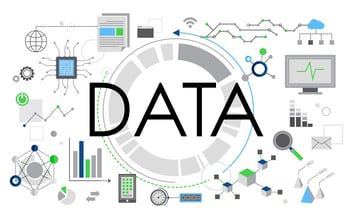As our lives increasingly intertwine with the digital world, safeguarding data has become a paramount task. From precious memories captured in pictures to crucial work documents and customer information, digital assets hold immense value. Yet, their vulnerability to loss or corruption is a looming threat for individuals and companies alike.
That’s where data backups and national holidays like World Backup Day come into play. It’s vital to raise awareness about the importance of backing up data and ensuring its safety. By implementing robust backup strategies and adhering to best practices, individuals and businesses can protect their data and ensure continuity.
Read: How to Prevent Data Loss
What Are Data Backups?
A data backup refers to the process of creating duplicate copies of sensitive information to protect against damage, loss, corruption or human error, including accidental deletion. These copies are stored separately from the original data with various options:
- External or removable drives (hard disk drives, solid-state drives, USB drives, tapes, DVDs, CDs)
- The cloud
- Network-attached storage (NAS)
A robust data backup plan is a crucial component of disaster recovery plans and cybersecurity compliance. With 60% of small businesses going out of business within six months of a cyber attack, data backups can help quickly recover or restore business operations and ensure business continuity. Trying to restore data from scratch can be expensive and time-consuming.
Two important factors of data backup to determine the type of data backup needed are recovery point objective (RPO) and recovery time objective (RTO). RPO looks at the frequency of data backups and how much data a company can afford to lose and still operate. RTO is the maximum amount of downtime a business can handle before it causes significant damage.
The Three Types of Data Backup
When deciding which data backup strategy to go with, users should know the three types:
- Full backup: This is a complete copy of all data and files. It takes the most amount of time, though it does offer a comprehensive restoration copy.
- Incremental backup: This only backs up data that has changed or was created since the last backup, no matter the time.
- Differential backup: This is like incremental backup but only copies over changes and additions from the last full backup.
A hybrid combination of these data backup types is often the best solution for companies. They should typically undergo a full data backup once a week with daily incremental and differential backups in between.
Read: Pros and Cons of Different Data Backup Solutions
Benefits of Data Backup
- Fast recovery: In the event of data loss due to hardware failure, human error or cyber attacks, backups enable quick recovery, minimizing downtime, costs and productivity loss. In fact, the average cost of downtime to a business is $5,600.
- Peace of mind: Knowing that your valuable data is securely backed up provides peace of mind so you can focus on other significant tasks without worrying about potential data loss.
- Protect against cyber attacks: With cyber attacks on the rise, having backups ensures that you can restore your data without paying hefty ransomware
- Compliance: For many businesses, data backup is often necessary to comply with regulatory requirements and legal obligations regarding data privacy and protection. This helps them avoid legal issues and hefty fines.
Best Practices for an Effective Backup Plan
Here are some best practices for developing and implementing an effective backup plan:
- Prioritize your data: Look at all your data and group it based on criticality and value. Ask yourself, “What data would cause the most damage to business operations if lost? What data needs the most protection against loss or theft?” This could include customer and employee data, financial data, operational data, intellectual property and more.
- Regularly backup data: Establish a routine for backing up your data, whether it’s hourly, daily, weekly, monthly or yearly. This should also include start times for the backup. You can automate the backup process, ensuring consistency and reducing the likelihood of human error or forgetfulness while minimizing disruption and saving downtime.
- Make multiple copies: Maintain multiple copies of your data to minimize the risk of data loss and ensure a reliable recovery. A great rule of thumb is the 3-2-1 rule: Three copies of data on two different devices, one being off-site.
- Set a retention rate: Companies can create a lot of data, and you can’t keep every piece forever due to fixed storage space. Determine how long you want to retain data backups, depending on how critical they are and how frequently they are made. Typically, you should keep hourly and daily backups for a week, weekly backups for a month and monthly backups for a few months or a year.
- Encryption: Encrypt your backups and implement access controls to protect backups from unauthorized access, especially for cloud-based solutions. You should also consider air gapping, which isolates a device or network.
- Protect endpoints: Endpoints, including desktops, laptops, tablets and phones, can be weak links in data backup strategies. Endpoint protection should be a crucial part of your backup strategy to safeguard these devices.
- Test backups: Backing up your sensitive data isn’t the end of the backup process; you must ensure you can restore the data when needed. Periodically test your backup restoration process to guarantee your data backups are viable and can be properly restored when needed. This is also a good time to highlight any vulnerabilities in the process so you can make necessary corrections.
Read: Safeguard Your Digital Assets with Data Loss Prevention
Thriveon Can Help Protect Your Data
At Thriveon, we understand how important it is for businesses to protect their data and customer data; it improves their reputation while giving a competitive advantage. That’s why we offer robust cybersecurity services that can protect data and systems from a variety of cyber threats.
Schedule a meeting with us now to see how we can help protect your data.

